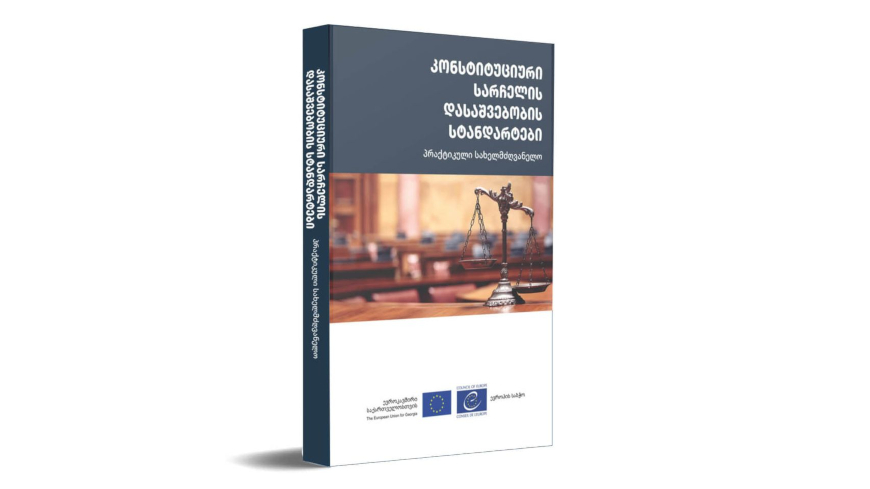Constitutional Court’s case law on admissibility criteria has been compiled and analysed in the manual "Constitutional Complains' Admissibility Standards."
It is the first manual of its kind, and its’ aim is to guide individuals, citizens, civil society representatives and other potential parties to file Constitutional complaints with further precision. Constitutional Court’s statistics demonstrate that a high number of complaints fail to go through the admissibility stage. In 2018, the Constitutional Court finalized 64 decisions, 46 out of which were on inadmissibility. By generalizing the case law of the Court on the main admissibility standards of constitutional complains, the objective is to fill to improve the above stated rates. Eventually, this will facilitate individuals’ access to constitutional justice and will reduce Court’s backlog.
Deputy President of the Constitutional Court Justice Tughushi noted: “Constitutional Court welcomes the creation of such a Manual that will contribute to further informing the public on the Constitutional justice. I strongly believe that this Manual will serve a positive function for potential complainants to assist them avoid frequent mistakes at the admissibility stage. It will also enable the Constitutional Court to save its resources by reducing the backlog.”
The manual was prepared within the framework of the project “Support to the Judicial Reform” in Georgia, funded by the European Union and the Council of Europe and implemented by the Council of Europe in their Partnership for Good Governance II.
Download the manual Constitutional Complains' Admissibility Standards in Georgian





